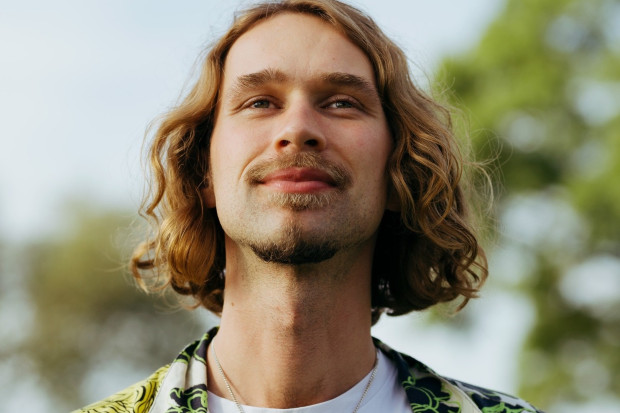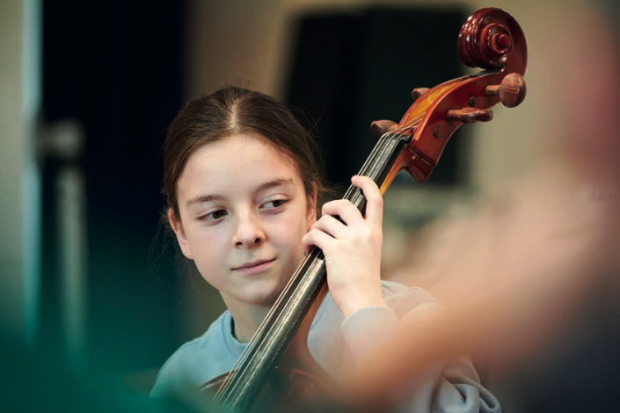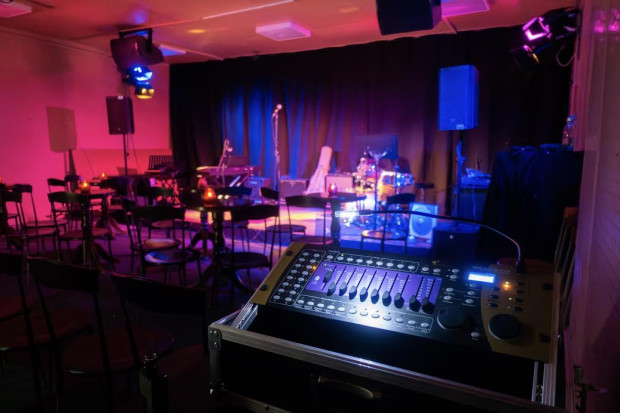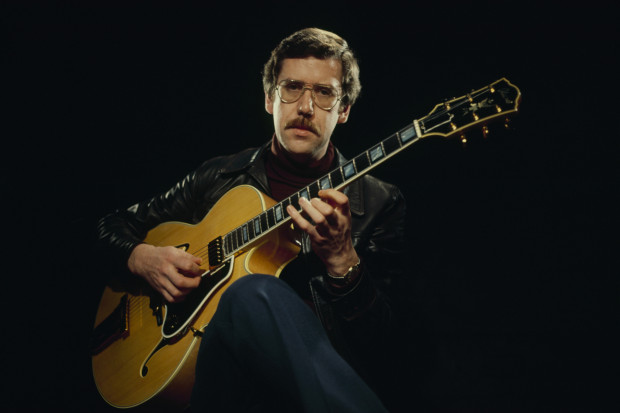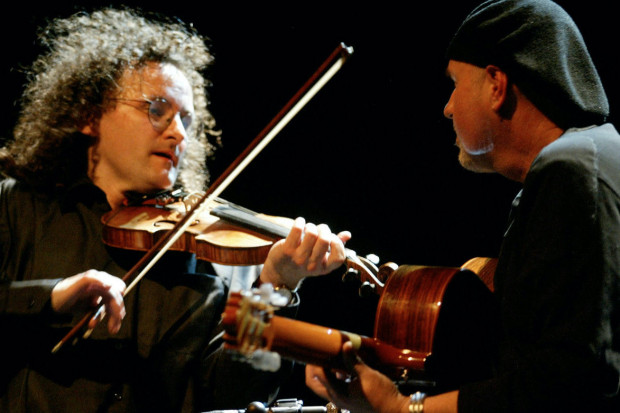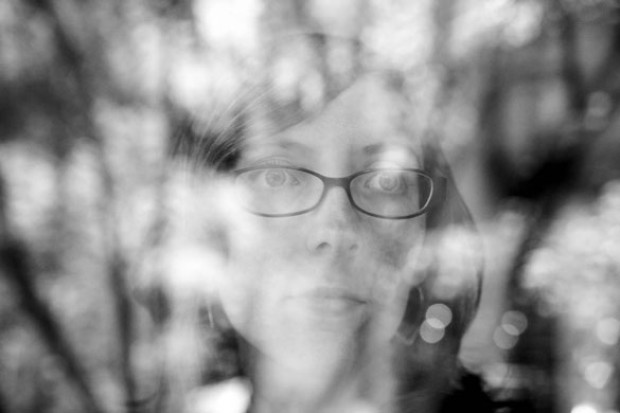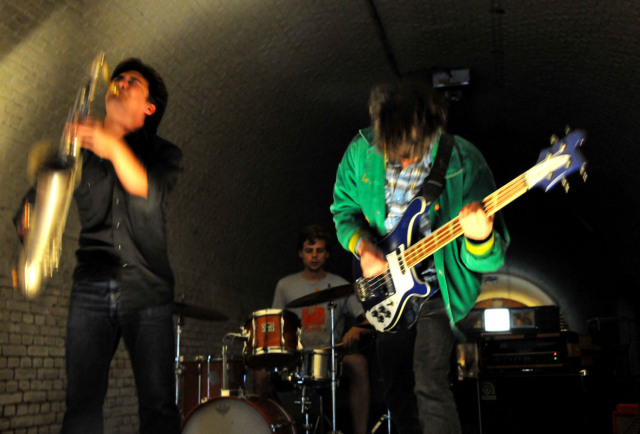
Cactus Truck. Photo: Mark Rietveld
The Mezzanine Festival for European Jazz
The four-day 12 Points! Festival, which showcases twelve young jazz artists and groups from twelve different European countries, returns to Dublin this year after last year’s event in Porto, Portugal. The line-up for the 2013 festival, which runs at the Project Arts Centre, Dublin, from 13 to 16 February is as follows:
- Beats & Pieces Big Band — Manchester, UK
- Cactus Truck — Amsterdam, Netherlands
- Enrico Zanisi Trio — Rome, Italy
- Hanna Paulsberg Concept — Oslo, Norway
- koenigleopold — Vienna, Austria
- Mopo — Helsinki, Finland
- Nikolas Anadolis — Thessaloniki, Greece
- OKO — Dublin, Ireland
- Olivia Trummer Trio — Berlin, Germany
- OZMA — Strasbourg, France
- Sarah Buechi’s THALi — Geneva, Switzerland
- Soil Collectors — Gothenburg, Sweden
‘12 Points! can be viewed as a “mezzanine” festival providing an important platform between the domestic structures from which these artists have emerged, and helping them on their way to the international stages to which they aspire,’ says Gerry Godley, Director of the Improvised Music Company and the man behind the festival’s foundation in 2007. ‘The festival’s mission to bring these emerging artists into a demanding performance environment, presenting their work to an international audience, in many cases likely to be the first time to do so. A significant part of that audience is their fellow participants and musical peers from other member states, facilitating another key objective of the festival’s mission, the germination of organic networks between artists across the EU.’
Performances take place at 7.30pm each evening, with festival passes available for €40. Find out more about the festival here.
The Journal of Music heard from several of the featured artists about the role the festival will play for them, and their perspective on jazz in Europe and in their home countries.
Lukas König of koenigleopold, Austria
‘We are happy to meet other people and experience an inspirational exchange with other musicians and music-interested people from all over Europe. Of course we are business oriented people as well and want to show international bookers, managers and journalists that Austria isn’t just popular for the Wiener Philharmoniker, Mozart and Schnitzel, but also for new music.
‘We are working on a show, that points to all our specialities — many different genres combined with a musical filter. This means we are [filtering] everything that surrounds us (all kinds of music, people, nature, food…) and turning it into our music.
‘European Jazz nowadays is a weird mix of traditional and contemporary jazz coming from the United States, music from northern European countries (Sweden, Norway, Finland), a little punk, and minimal techno from Berlin and not to forget all the Jazz institutes and music universities in nearly every European capital city. At least, this is where the journalistic spotlight is pointed on all the time.
‘This is kind of annoying for us, because this is the reason that thousands of European jazz bands sound the same and are boring. There are so many bands on our continent, that are much more inventive and interested in looking for new sounds and breaking borders outside of the jazz world. Jazz people should be interested in other genres aswell and i think that this happening too rarely. So instead of finding the perfect harmonic structure or the perfect melody, sound and silence in a bigger perspective is much more important for our work.’
Enrico Zanisi of the Enrico Zanisi Trio, Italy
‘What interested me most about 12 Points! was the opportunity to get in contact with the musical scene from other European countries, to compare and share musical experiences. I will be performing, with my trio, the music from my last album, Life Variations. I’ve changed the sequence a little bit for this particular performance.
‘During the festival I will be hearing eleven other bands representative of European jazz, so for me it is definitely a snapshot of what’s happening outside of Italy. Since this is my first experience at a European level, it’s hard for me to define ‘European jazz’ per se, but i can say what ‘contemporary jazz’ means to me: it’s the meeting of the American tradition with my own cultural background where improvisation plays a major role.
‘Jazz was born from the encounter between European classical music, African music and the so-called ‘Spanish thing’. Italy has always been a cradle of classical music, and opera arias of the nineteenth century were known by many jazzmen (Louis Armstrong, for one). In addition to this, some of the first jazz musicians had Italian origins, and so they inevitably brought their musical traditions to [jazz].’
Nikolas Anadolis, Greece
‘At a very young age my way of thinking about music [was already] that one should be ready anytime for a performance and this requires a lot of daily practicing. Also, It’s very important to stay open for other styles of music since this is helping you to explore different parts of your style. In my case, I am preparing works everyday in order to keep myself creative and excited. I spent a lot of time performing and analysing classical scores and this is very influential when It comes to improvisation and composing. The overwhelming majority of my compositions have never premiered in a concert yet as result I have plenty material I can use for this concert.
‘Besides that, I always prefer to perform pieces that feel fresh to me. My idea of planning a set is to bring together tunes, pieces or large works (i.e. a symphony) ahead of time and later decide which of them are going to be my primary source in the performance. Because one of the most important elements in my music is improvisation, I like to use the planned material (tunes or themes of large pieces) as interludes between my improvisations. The themes limit me in a few directions and this helps me to create specific structures in my improvisations.’
John Dikeman of Cactus Truck, the Netherlands
‘I am amazed by the diversity of the festival and view that as a very positive thing. I’m really looking forward to hearing the other bands and meeting the musicians, seeing how they operate, what their musical criteria is, etc. I was hoping Cactus Truck would be accepted, of course, but I was still a bit surprised when we actually were. We are very far from straight ahead jazz.
‘As a band, we always improvise, so it isn’t a matter of remembering forms or getting rhythms tight, but it still takes a great deal of discipline to play well as a group. Luckily we have played a lot recently. Winter of 2012 we did almost forty gigs in the USA. Maybe a bit of a break is useful now to get out of easy solutions to problems and find new ideas. One consideration for this performance is length. When we first started performing as a trio we approached it more as a noise band — twenty-minute sets where we’d push ourselves to the breaking points and by the end we’d be exhausted. I still like this format, and we sometimes do short sets, but for a festival like this it’s important to stretch out a bit and play.
‘The Netherlands, is a fascinating place to live as a musician. It is amazingly open. The ‘jazz’ scene has a very broad range and I’ve been amazed that they are open to even very radical interpretations of the ‘tradition’. Of course, arguably the most famous Dutch jazz musicians are those coming directly from the late 1960s improvised music scene, such as Han Bennink and Misha Mengelberg as well as the late Willem Breuker. It’s such a different history than in the United States [Dikeman’s country of birth]. I feel the musicians in the Netherlands feel less of a weight of history. Or a need to answer to it. You can hear in their music that they loved that music enough to carry it forward and make it into a personal voice instead of trying their best to replay what had already been played. This approach is very honest and very freeing.’
Jonathan Albrektson of Soil Collectors, Sweden
‘It’s always a bit difficult for us when there’s a time limit on the performance because our music tend to make us forget about time and space so our songs can sometimes feel like they go on forever. We like that and the audience seem to like it as well. It’s beautiful thing to let it all go and just lose yourself in the music where nothing else can bother you. People have come up to us after our shows and said that listening to us have given them strength and a cure — which make us very, very happy. We hope to reach this state together with the audience at 12 Points! Our set at 12 points will be a bit shorter, but the music will stay the same: wild, enchanting, emotional, beautiful.
‘For me the core of jazz is improvisation. And bringing this together with today’s acoustic and electronic pop influences creates a fine mixture. I have many friends that are jazz musicians but more and more do experimental pop projects. And by pop I don’t just mean the typical radio hit type, but a bigger definition of pop. I’d say this is also the thing with Soil Collectors. We love improvisation, especially free improv, and we mix this together with a more ‘pop-ish’ sound. For me it’s easier to express my self accordingly to my generation and the music I have around me, not using the same old jazz standards over and over again.
‘Music life in general in Sweden is hard. When the economy goes to hell culture is the first thing that takes the fall. Politicians don’t know what the benefit is with having a rich culture life — and sadly some musicians too are not good at taking this debate. I would love to see musicians joining together even more, helping each other and letting everyone know the importance of what we do. Even I would have trouble defending my point of view if I were to have a debate with a politician. But we need to expand our awareness so that we can raise the status of the “artist/musician” and by that, give more to society.
‘I wish to extend a big thanks to Gerry Godley, Kenneth Killeen and Aoife Concannon [of the Improvised Music Company] who do a great job managing this festival. It’s people like them that keeps music life moving forward by finding and supporting new interesting acts across Europe!’
Sarah Buechi of THALi, Switzerland
‘The music of THALi is influenced by my studies in the south of India, Bangalore. THALi shows a synthesis of my own (Western) song writing and the rhythmical, improvisational and formal elements that I have taken out of the Carnatic music that I have learned in India during quite intense eighteen months of studies and performances under the guidance of my wonderful gurus a couple of years ago. The programme we will present at the 12 Points! Festival will show the different shades of fusion that can be found in my songs.
‘There are so many fusions happening in the modern jazz scene that it is quite impossible to show all its facets [in a single festival], but, as a contemporary jazz singer, the most important facet is that jazz doesn’t have to swing anymore and is much more than a reproduction of a past style. Jazz always was and stays a contemporary movement in addition to keeping the tradition and roots alive.
‘Switzerland is in the middle of Europe. It is surrounded by other countries and cultures. Swiss folk music hasn’t found much space in the jazz scene, I think. I can see more influences by either “world music” or pop, funk and rock music. In Switzerland, jazz musicians seem to have more of an audience for all kind of jazz fusions. Compared to Ireland, the audience there seems to be more used to this invasion and experimentation in the scene, which makes a lot of sense, I suppose, given that Ireland is an island.’
Shane Latimer of OKO, Ireland
‘We’re working to keep as much improvised elements in the set as possible. We’ve been recording group improvisations and listening back to see what works. Sometimes we’ll form a composition or discover a new arrangement for a piece this way.
‘There is a concerted effort on the part of the programmer [of 12 Points!] to seek out diverse acts from around the continent. European jazz and indeed jazz worldwide is defined by its diversity. Jazz musicians are not averse to apply techniques learned through jazz to other musics or media. This in turn informs the music which they themselves produce.’
Olivia Trummer of the Olivia Trummer Trio, Germany
This will it be my first appearance not only in Ireland but performing my music in an English-speaking country. This is exciting for me since … the lyrics to all of my new songs are written in English. The 12 Points! festival seems to be very dynamic and personable, applying an insider-like filter to present a kaleidoscope of exciting and audacious examples of European jazz.
My goal was to present as much of the new music I recently composed as possible. Therefore, it will become a set characterised by several premieres. Since I moved to Berlin not long ago, the festival made me finally put together my new trio and start developing the new songs.
The more examples of ‘European jazz’ I’m introduced to the more I realize how huge the European jazz scene has become and how much music there is that I actually don’t know. My idea of ‘European jazz’, in a way, is mostly shaped by what happens when I sit at the piano and — either practicing, composing, improvising or performing — touch the keys, close my eyes, hum to it. The ‘European jazz scene’ I know is happening inside of my body and it’s both too blurry and too beautiful to verbalize it.
I feel that in Germany there’s such a strong and old tradition of verbalising and conserving almost everything — including music. The danger of this, in my opinion, is to intellectualise music and hence remove it from the ‘paradise’ of intuition and fearless originality. The pressure of ‘being different’ seems very present at times [in Germany] and can become an end in itself. Maybe that’s the reason why I don’t aim to always be up to date or check out every jazz concert and new record because I don’t want to take part too much in that carrousel.
Hanna Paulsberg of Hanna Paulsberg Concept, Norway
We have changed our set [for 12 Points!] a little bit, because of the time limit of fifty minutes. With no time limit, we usually tend to play very long concerts. But a time limit can be good — you will have to focus in a different way, and plan a set that will work. We will probably try to make it a variated set, so we can be able to show the things that are unique for our band.
I dont know if the festival gives me a snapshot of European jazz at the present time, but I am very excited to hear what moves in other parts of Europe. I was on tour with the European Jazz Orchestra in September 2012, and realised that there are so many different things going on, and so many different traditions and ways of surviving as a young musician all over Europe.
I think the Norwegian music scene is really happening right now, and has been for some time. Music is becoming a bigger and bigger export in our country. I think there is an openness that is common for many Norwegian musicians, independent of wich genre they operate in — maybe especially in the jazz or rhythmic music scenes, where musicians mix genres more and more.
Ben Cottrell of Beats & Pieces Big Band, UK
I have heard loads of really great things about 12 Points! since I first came across it a few years ago, not least from bands that have played there in the past who said its a really great festival run and attended by really cool people and with lots of really great music to discover. Also I think that the festival’s ethos of bringing together emerging artists from across the continent and from different cultural and artistic backgrounds is really important and meeting and hearing all the other musicians is something I’m really looking forward to.
I’m currently busy writing music for our second album, which we’ve been playing through and workshopping since before Christmas. We just played our first gig of the year this week and had a full rehearsal day before that so we’re feeling really fresh and excited to play to a brand new audience in Ireland, it’ll be our first ever gig there. Festival sets are normally a bit shorter than we’d normally play, so it takes a bit more thought as to what to put in and leave out but I guess that just means that the shorter set is hopefully all killer!
I guess for me the definition of contemporary European jazz is that you can’t really define it — it’s anything and everything, which is a really great thing. People’s music is influenced by not only their own culture but neighboring cultures as well as how the two fit together, and obviously in Europe there’s so many different places and identities that literally anything can happen when you mix all that up. I think 12 Points! reflects that — there’s so much variety and contrast across the whole lineup but at the same time everything is linked by that freedom to interpret everything we’ve been exposed to as individual musicians.
[In the UK we are] arguably a bit more isolated, I think we sometimes have a bit of an island mentality — if only because it’s historically been more difficult or expensive to get off the island onto the continent to play and experience other music than it is to travel within mainland Europe. Thats definitely changing though which is really exciting.












